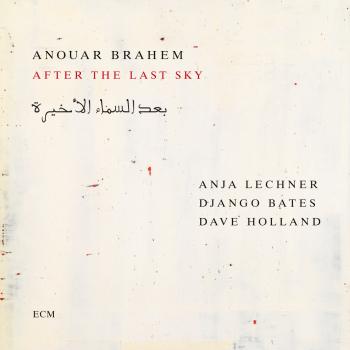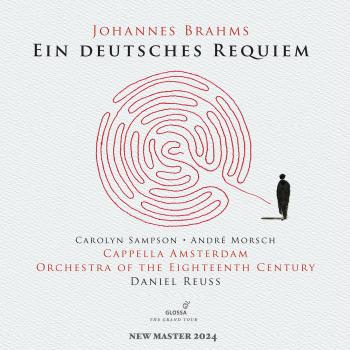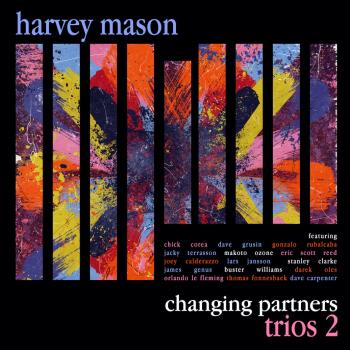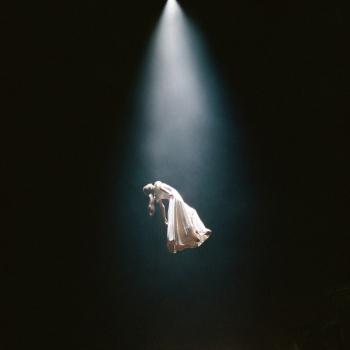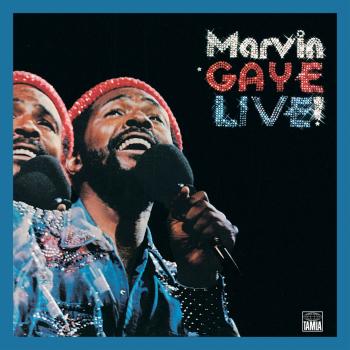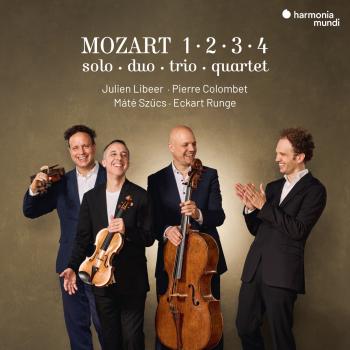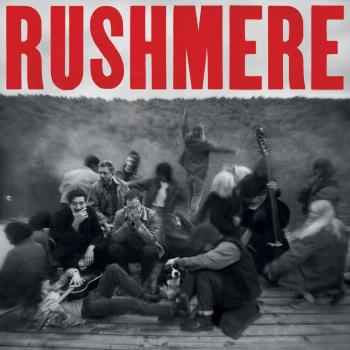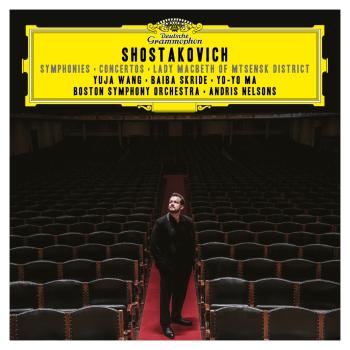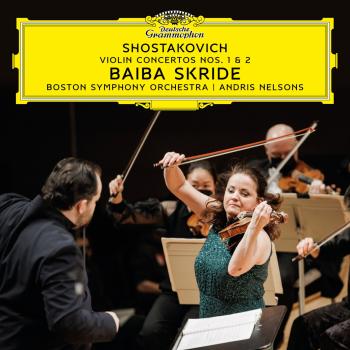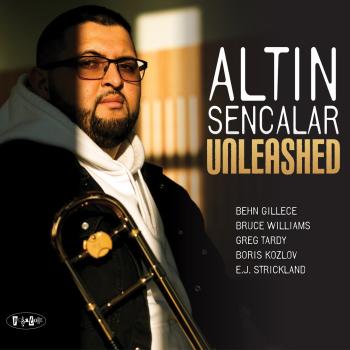
BACH: The Art of Life (Encore Edition) Daniil Trifonov
Album info
Album-Release:
2021
HRA-Release:
11.02.2022
Label: Deutsche Grammophon (DG)
Genre: Classical
Subgenre: Instrumental
Artist: Daniil Trifonov
Composer: Johann Sebastian Bach (1685-1750), Wolfgang Amadeus Mozart (1756-1791), Wilhelm Friedemann Bach (1710-1784), Carl Philipp Emanuel Bach (1714-1788), Johann Christian Bach (1735-1782)
Album including Album cover Booklet (PDF)
I`m sorry!
Dear HIGHRESAUDIO Visitor,
due to territorial constraints and also different releases dates in each country you currently can`t purchase this album. We are updating our release dates twice a week. So, please feel free to check from time-to-time, if the album is available for your country.
We suggest, that you bookmark the album and use our Short List function.
Thank you for your understanding and patience.
Yours sincerely, HIGHRESAUDIO
- Johann Christian Bach (1735 - 1782): Sonata No. 5 in A Major, Op. 17, No. 5
- 1 J.C. Bach: Sonata No. 5 in A Major, Op. 17, No. 5: I. Allegro 03:41
- 2 J.C. Bach: Sonata No. 5 in A Major, Op. 17, No. 5: II. Presto 02:36
- Wilhelm Friedemann Bach (1710 - 1784): 12 Polonaises, F. 12:
- 3 W.F. Bach: 12 Polonaises, F. 12: No. 8 in E Minor 05:17
- Carl Philipp Emanuel Bach (1714 - 1788): 2 Clavier-Sonaten, 2 Fantasien und 2 Rondos für Kenner und Liebhaber, Wq. 59
- 4 C.P.E. Bach: 2 Clavier-Sonaten, 2 Fantasien und 2 Rondos für Kenner und Liebhaber, Wq. 59: IV. Rondo in C Minor, H. 283 04:47
- Johann Christoph Friedrich Bach (1732 - 1795): Variations on 'Ah, vous dirai-je, Maman':
- 5 J.C.F. Bach: Variations on 'Ah, vous dirai-je, Maman': Thema (Allegretto) 00:22
- 6 J.C.F. Bach: Variations on 'Ah, vous dirai-je, Maman': Var. 1 00:17
- 7 J.C.F. Bach: Variations on 'Ah, vous dirai-je, Maman': Var. 2 00:21
- 8 J.C.F. Bach: Variations on 'Ah, vous dirai-je, Maman': Var. 3 00:23
- 9 J.C.F. Bach: Variations on 'Ah, vous dirai-je, Maman': Var. 4 (Minore) 00:37
- 10 J.C.F. Bach: Variations on 'Ah, vous dirai-je, Maman': Var. 5 (Maggiore) 00:17
- 11 J.C.F. Bach: Variations on 'Ah, vous dirai-je, Maman': Var. 6 (Tempo di Minuetto) 00:45
- 12 J.C.F. Bach: Variations on 'Ah, vous dirai-je, Maman': Var. 7 00:32
- 13 J.C.F. Bach: Variations on 'Ah, vous dirai-je, Maman': Var. 8 (Schwäbisch, Non allegro) 00:32
- 14 J.C.F. Bach: Variations on 'Ah, vous dirai-je, Maman': Var. 9 (Minore, Tranquillo) 00:35
- 15 J.C.F. Bach: Variations on 'Ah, vous dirai-je, Maman': Var. 10 (Maggiore, Tempo I) 00:31
- 16 J.C.F. Bach: Variations on 'Ah, vous dirai-je, Maman': Var. 11 00:24
- 17 J.C.F. Bach: Variations on 'Ah, vous dirai-je, Maman': Var. 12 (Alla Siciliano) 00:34
- 18 J.C.F. Bach: Variations on 'Ah, vous dirai-je, Maman': Var. 13 00:13
- 19 J.C.F. Bach: Variations on 'Ah, vous dirai-je, Maman': Var. 14 00:18
- 20 J.C.F. Bach: Variations on 'Ah, vous dirai-je, Maman': Var. 15 (Più andante) 00:49
- 21 J.C.F. Bach: Variations on 'Ah, vous dirai-je, Maman': Var. 16 (Tempo I) 00:19
- 22 J.C.F. Bach: Variations on 'Ah, vous dirai-je, Maman': Var. 17 (Minore) 00:28
- 23 J.C.F. Bach: Variations on 'Ah, vous dirai-je, Maman': Var. 18 (Maggiore, Allegro) 00:31
- Johann Sebastian Bach (1685 - 1750):
- 24 J.S. Bach: Musette in D Major, BWV Anh. 126 (Notebook for Anna Magdalena Bach, 1725) 00:56
- 25 J.S. Bach: Aria "Gedenke doch, mein Geist, zurücke", BWV 509 (Notebook for Anna Magdalena Bach, 1725) 00:42
- 26 J.S. Bach: Minuet in A Minor, BWV Anh. 120 (Notebook for Anna Magdalena Bach, 1725) 01:34
- 27 J.S. Bach: Minuet in F Major, BWV Anh. 113 (Notebook for Anna Magdalena Bach, 1725) 02:57
- 28 J.S. Bach: Polonaise in F Major, BWV Anh. 117b (Notebook for Anna Magdalena Bach, 1725) 00:57
- 29 J.S. Bach: [Polonaise] in D Minor, BWV Anh. 128 (Notebook for Anna Magdalena Bach, 1725) 03:42
- 30 J.S. Bach: Choral "Gib dich zufrieden und sei stille", BWV 511 (Notebook for Anna Magdalena Bach, 1725) 01:05
- Christian Petzold (1677 - 1733):
- 31 Petzold: Minuet in G Major, BWV Anh. 114 (Notebook for Anna Magdalena Bach, 1725) 01:46
- Johann Sebastian Bach:
- 32 J.S. Bach: Minuet in G Major, BWV Anh. 116 (Notebook for Anna Magdalena Bach, 1725) 01:12
- Carl Philipp Emanuel Bach:
- 33 C.P.E. Bach: Polonaise in G Minor, BWV Anh. 125 (Notebook for Anna Magdalena Bach, 1725) 01:09
- Johann Sebastian Bach:
- 34 J.S. Bach: Minuet in C Minor, BWV Anh. 121 (Notebook for Anna Magdalena Bach, 1725) 01:34
- Gottfried Heinrich Stölzel (1690 - 1749):
- 35 Stölzel: Bist du bei mir (Formerly Attrib. J.S. Bach as BWV 508, Notebook for Anna Magdalena Bach, 1725) 03:29
- Johannes Brahms (1833 - 1897):
- 36 Brahms: 5 Studies, Anh.1a/1: V. Chaconne (After Violin Partita No. 2 in D Minor, BWV 1004 by J.S. Bach, Arr. for Piano) 15:01
- Johann Sebastian Bach: The Art Of Fugue, BWV 1080:
- 37 J.S. Bach: The Art Of Fugue, BWV 1080: Contrapunctus 1 02:45
- 38 J.S. Bach: The Art Of Fugue, BWV 1080: Contrapunctus 2 02:23
- 39 J.S. Bach: The Art Of Fugue, BWV 1080: Contrapunctus 3 02:33
- 40 J.S. Bach: The Art Of Fugue, BWV 1080: Contrapunctus 4 02:40
- 41 J.S. Bach: The Art Of Fugue, BWV 1080: Contrapunctus 5 03:07
- 42 J.S. Bach: The Art Of Fugue, BWV 1080: Contrapunctus 6 [per Diminutionem] in Stylo Francese 05:36
- 43 J.S. Bach: The Art Of Fugue, BWV 1080: Contrapunctus 7 per Augmentationem et Diminutionem 03:21
- 44 J.S. Bach: The Art Of Fugue, BWV 1080: Contrapunctus 8 05:00
- 45 J.S. Bach: The Art Of Fugue, BWV 1080: Contrapunctus 9 alla Duodecima 02:29
- 46 J.S. Bach: The Art Of Fugue, BWV 1080: Contrapunctus 10 alla Decima 04:01
- 47 J.S. Bach: The Art Of Fugue, BWV 1080: Contrapunctus 11 04:53
- 48 J.S. Bach: The Art Of Fugue, BWV 1080: Contrapunctus [12] [rectus] 03:25
- 49 J.S. Bach: The Art Of Fugue, BWV 1080: Contrapunctus 12 inversus 03:16
- 50 J.S. Bach: The Art Of Fugue, BWV 1080: Contrapunctus [13] [rectus] 01:53
- 51 J.S. Bach: The Art Of Fugue, BWV 1080: Contrapunctus [13] inversus 01:57
- 52 J.S. Bach: The Art Of Fugue, BWV 1080: Canon [in Hypodiatessaron] per Augmentationem in Contrario Motu 03:33
- 53 J.S. Bach: The Art Of Fugue, BWV 1080: Canon in Hypodiapason (Canon alla Ottava) 01:52
- 54 J.S. Bach: The Art Of Fugue, BWV 1080: Canon alla Decima in Contrapunto alla Terza 03:12
- 55 J.S. Bach: The Art Of Fugue, BWV 1080: Canon alla Duodecima in Contrapunto alla Quinta 02:40
- Daniil Trifonov (b. 1991), Johann Sebastian: The Art Of Fugue, BWV 1080:
- 56 J.S. Bach, Trifonov: The Art Of Fugue, BWV 1080: [Contrapunctus 14] (Compl. by Daniil Trifonov) 10:34
- Johann Sebastian Bach: Herz und Mund und Tat und Leben, Cantata BWV 147:
- 57 J.S. Bach: Herz und Mund und Tat und Leben, Cantata BWV 147: Jesu, Joy of Man’s Desiring (Transcr. Hess for Piano) 04:19
- Daniil Trifonov: Canon:
- 58 Trifonov: Canon (Counter-Retrograde, based on Bach’s The Art of Fugue) 04:23
Info for BACH: The Art of Life (Encore Edition)
Bach: The Art of Life presents music by Johann Sebastian Bach and four of his sons, as well as two pieces that were Bach family favourites. Here he performs the album’s monumental centrepiece – Johann Sebastian’s late masterpiece The Art of Fugue, whose fourteen fugues and four canons explore different contrapuntal ways of treating a single theme. As the pianist explains, though the work is based on mathematical principles, it is “far more than a scientific experiment: as always with Bach, [it is] music of indescribable beauty and emotion”. The Art of Fugue was left unfinished at Bach’s death, and Trifonov has composed his own stylistically respectful conclusion to its final fugue. He ends this recital with Dame Myra Hess’s moving transcription of “Jesu, Joy of Man’s Desiring”.
The album begins in a lighter vein with a family portrait in the shape of four charming works by his gifted sons: Johann Christian's Sonata No. 5 in A major, Wilhelm Friedemann's Polonaise No. 8 in E minor, Carl Philipp Emanuel's Rondo in C minor and Johann Christoph Friedrich's Variations on "Ah, vous dirai-je, maman". Trifonov notes that it was common in Germany at that time for families to have their own specialization and Bach, himself descended from musicians, clearly passed on his gifts: "It's an incredible parental achievement that four of his children wrote wonderful music! And each had his own individual voice."
Trifonov also presents a selection of music from the notebook Johann Sebastian gave his second wife Anna Magdalena in 1725, which features works by family members and others. As well as pieces by Bach himself, perhaps used when he was teaching his children, Trifonov has chosen a Minuet by Christian Petzold and a love song: Gottfried Heinrich Stölzel's aria "Bist du bei mir". As he points out, "Bach is known as one of the greatest composers of religious music...but he was also an ordinary human, he fell in love, he was a family man..."
Forming a contrast to these short album pieces is Trifonov's performance of Brahms's transcription (for the left hand) of the Chaconne in D minor, originally scored for solo violin and thought by some to be Bach's response to the death of his first wife, Maria Barbara. "What I love about Brahms's transcription," says the pianist, "is that it's so close to understanding how the violin works...it conveys the struggle of the violinist who has to reach for intervals with the left hand." Trifonov brings out the music's blend of Baroque and Romantic sensibilities, investing its architecture with a dark, meditative quality.
He shows the equally impeccable technique in The Art of Fugue, which consists of fourteen fugues and four canons that explore, on a mathematical basis, the contrapuntal possibilities inherent in a single theme. This monumental work is rarely heard in performance, partly because of its technical demands and partly, as Trifonov explains, "because it is all written in one key and on one theme so the performer has to bring enough variety to the score."
The pianist is intrigued by Bach's attempts to base the work on the Fibonacci sequence and the golden ratio, but observes that the result is "far more than a scientific experiment: as always with Bach, he managed to make music of indescribable beauty and emotion." Trifonov's imaginative interpretation captures the sense of the work as a cycle, treating it as a living, organic whole. This chimes with the inspiration he takes from spending time in nature, whether hiking or practicing Qigong, a form of meditation that values the healing energy of trees. "And the tree is a good metaphor for The Art of Fugue's overall structure," he notes. "The theme is the trunk, the fugues are the branches, all the permutations within each fugue are the leaves..."
Bach did not live to finish The Art of Fugue's final contrapunctus, and a number of musicians have attempted conjectural completions. For this recording, Trifonov, himself an accomplished composer, has created a seamless, stylistically respectful conclusion worthy of Bach's genius. It reflects the extent to which he has absorbed and internalized every nook and cranny of Bach's valedictory masterpiece.
He ends his program with an eloquent reading of Dame Myra Hess's transcription of "Jesu, Joy of Man's Desiring", a reminder that, for Bach and his contemporaries, "music was another embodiment of nature and natural laws, and mathematics and science were also thought to be part of a divine order."
“This album is, in many ways, about love: the romantic love between Johann Sebastian and his first and second wives; familial love between parents and their children; and love for the Creator.” (Daniil Trifonov)
Daniil Trifonov, piano
Daniil Trifonov
Talent contests are unpredictable, that's why we watch them. Even the ones that are rigged by judges or manipulated by media owners manage to command our attention for the possibility, faint as it may be, that a genius will emerge from nowhere to assert an irrefutable superiority and claim the crown.
That's not quite how it panned out at the 2011 International Tchaikovsky Competition in Moscow. A state event bedevilled from the outset by every kind of chicanery was being cleaned up by the conductor Valery Gergiev and the retired Van Cliburn boss Richard Rodzinski. Their remedy was to stream every session online, worldwide, so the public could form a view at the same time as the judges. From the first round, as we tuned in, it became apparent that there was only going to be one piano winner.
Daniil Trifonov, 20 years old, displayed the artistry and authority of a seasoned master. Less a competition than a coronation, the Tchaikovsky awarded Trifonov not just the first prize and gold medal, but the audience award, a Mozart citation and the admiration of Gergiev, who demanded to conduct his first live recording. If ever there was a runaway winner, this was it.
Trifonov had come third nine months earlier in the Chopin competition in Warsaw and first, weeks before, in the Arthur Rubinstein in Tel Aviv. He was well on his way to an international career. But what we saw and heard in Moscow was a manner of playing that set him, by an invisible cordon, six inches apart from every other living pianist. To describe what he does is not easy. Martha Argerich speaks of a 'demonic element', modified by a unique tenderness. I observed an ethereal detachment, allied to an almost preternatural symbiosis with his audience.
Some weeks after the competition, the lights went out in a new concert hall in Guildford, where Trifonov was playing with the London Symphony Orchestra. The conductor dropped his arms and the orchestra, ears to the soloist, played through to the end. Then, in pitch darkness, Trifonov played solo Chopin, forging a transcendent connection with his audience that none will ever forget.
What has impressed me most is his ability to connect the dots and find coherence in apparently disparate pieces. Where many play the Chopin Etudes as a run of five-finger exercises, Trifonov finds narrative, tells a story, introduces us to a class of difficult characters and tense situations. Hearing him play the Opus 10 set at London's Wigmore Hall, I knew that this was a pianist I wanted to hear for the rest of my life.
Who is Daniil Trifonov? The only child of a pair of musicians who met as university students in the central Russian city of Nizhny Novgorod (formerly Gorky), he took up a pencil at five years old and started composing. This may have been in imitation of his father, who writes Masses for the Russian Orthodox church, but tests showed that the boy had perfect pitch and he was sent to the best piano teacher in the region.
Having played a concerto at the age of eight, he upped sticks with his family and moved to Moscow so that he could study at the Gnessin School with Tatiana Zelikman, a rigorist who traces her piano lineage to Heinrich Neuhaus, tutor of Richter, Gilels and the rest of the Russian legends.
After nine years, Zelikman sent him to Cleveland to finish his studies with Sergei Babayan, another third-generation Neuhaus pupil. Consistency, tradition and authenticity were the bywords of Trifonov's education. In Cleveland, he knuckled down and worked hard. Babayan told him no pianist had won the Tchaikovsky Competition playing a Chopin concerto. After the victory, instead of hitting the concert trail, Trifonov returned to his teacher to start work on new pieces. 'There is never a time when the teaching has to stop,' says Trifonov.
The only blip in his progress came when, at 13, he slipped on ice on the way to a Zelikman lesson and broke his arm, putting him out of piano action for three weeks. The accident, one suspects, was a huge trauma, but also an affirmation. Trifonov talked about the lay-off to Elijah Ho, of the San Francisco Examiner: 'It was absolute torture for me,’ he confessed. 'Basically, this wasn’t a moment about realizing technique or other things, but about how important music was to me. It was so uncomfortable and so stressful to not be able to play...'
Torn from infancy between composing and playing, this was perhaps the moment when Daniil Trifonov realised that playing mattered most to him in terms of self-expression. That said, he continues to compose, taking lessons at the Cleveland Institute of Music and working on his own scores whenever time permits. In a telephone conversation from Tel Aviv, where he returns often by popular request, he tells me that he is writing a piano concerto. He does not let a day pass without touching the piano.
But there's plenty else he's working on, besides. Maurice Ravel’s Miroirs, those shimmering illusions of unattainable beauty, and Arnold Schoenberg's Three Pieces, opus 11, the foundation stones of musical expressionism. He heard the Schoenberg on a Deutsche Grammophon recording by Maurizio Pollini and was smitten. His mind works in eclectic ways, his fingers at their own pace. He broached the Rachmaninov D minor Concerto last season and will follow up soon with the C minor, playing the tougher work first. For his recital debut on DG, recorded live at Carnegie Hall, he plays Liszt's massive B minor Sonata and Chopin's Preludes, opus 28.
But the core of the album is music by Scriabin: the Second Sonata in G sharp minor, also known as the 'Sonata-Fantasy'. Scriabin was a speciality of the tormented Neuhaus, whose wife left him for Boris Pasternak, a Scriabin pupil; when Pasternak died, Neuhaus’s pupil Sviatoslav Richter played Scriabin all night on an upright piano beside the body. The linearity of Russian music is imbued in Trifonov as a matter of first principles.
Success has not gone to his head. Shy, courteous, quick to smile, Daniil Trifonov may never be the life and soul of the party or a public entertainer in the Arthur Rubinstein mould. What he brings to the keyboard is himself, a sensational technique and a sense of destiny. Watch, and you will see that he was born to play. Listen, and be amazed.
Booklet for BACH: The Art of Life (Encore Edition)

